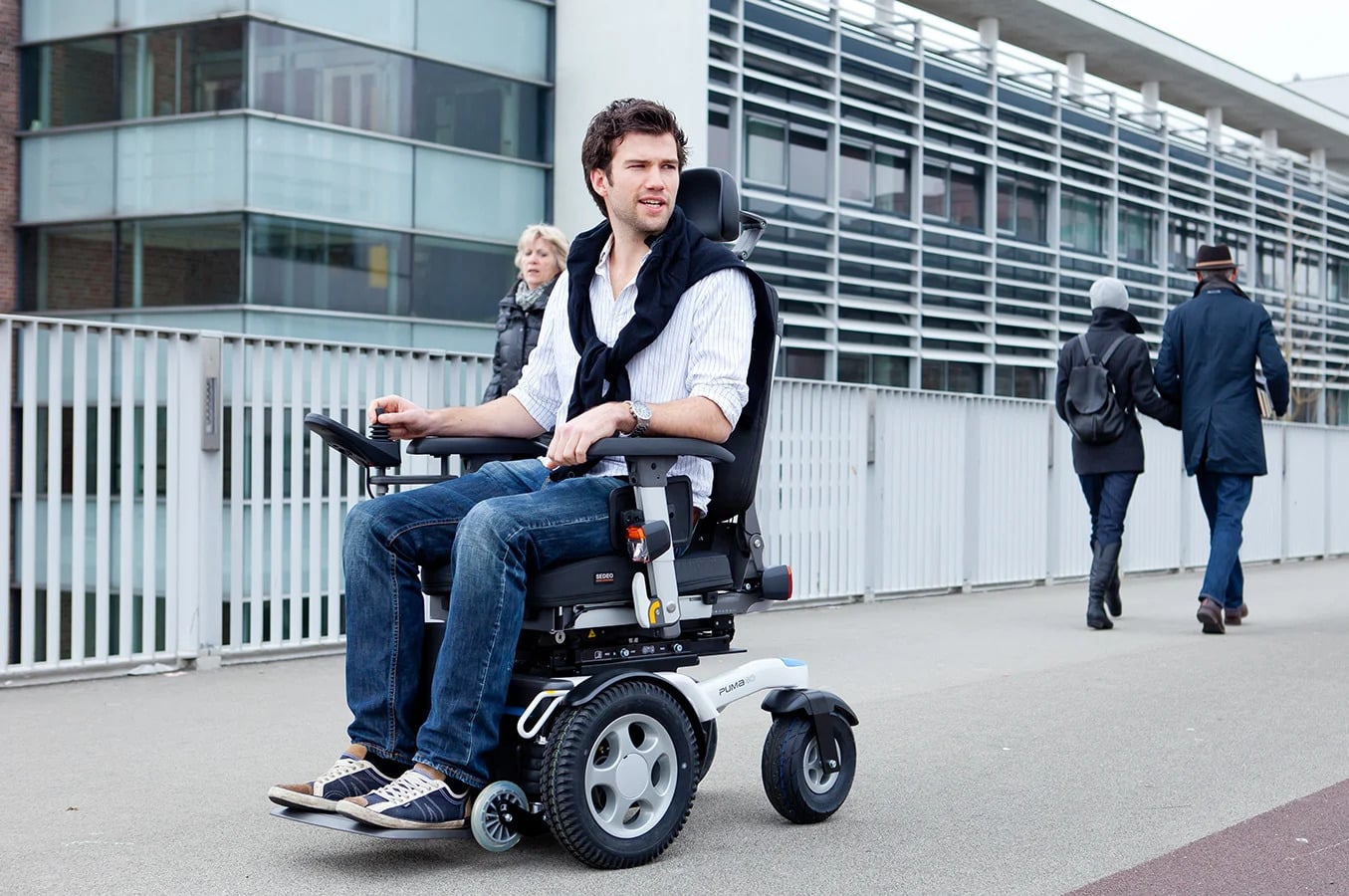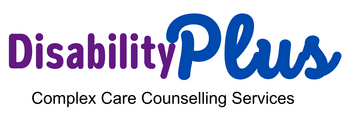Specialist Epilepsy Coaching
Epilepsy Coaching, is it for you?
Living with epilepsy can be challenging. Nearly everyone with epilepsy requires support to navigate tough days, manage their condition effectively, and prevent feelings of despair and depression.
Epilepsy Coaching, offered by DisabilityPlus, serves as an initial step towards addressing these challenges before considering mental health counselling.
News flash: not everyone with epilepsy experiences mental health issues. Why? Because seizures are not always caused by poor mental health. We can confidently state this because our coaches and mental health counsellors, who either have or had epilepsy themselves, do not possess mental health issues.
With their personal experience and expertise, they are equipped to provide valuable guidance and support to individuals facing epilepsy-related difficulties.
Who is Epilepsy Coaching for?
Our service is for anyone affected by Epilepsy & who is twelve and over.
Individuals
Couples
Family Members
What is Epilepsy?
Epilepsy, also known as a seizure disorder, is a neurological condition characterised by recurrent seizures. There are various types of epilepsy, and while the cause can be identified in some cases, it remains unknown in others.
Epilepsy is a common disorder, affecting people of all genders, races, ethnic backgrounds, and ages. According to the Epilepsy Foundation, it is estimated that 1 in 26 individuals will develop epilepsy at some point in their lives.
The symptoms of seizures can vary greatly. While some individuals may experience a loss of awareness during a seizure, others may not. Seizures can manifest as brief episodes of blank staring or as convulsions and spasms involving repetitive movements of the arms or legs.

Information is key
It is important to note that having a single seizure does not necessarily indicate epilepsy. A diagnosis of epilepsy typically requires the occurrence of at least two unprovoked seizures, separated by a minimum of 24 hours. Unprovoked seizures are those that lack a clear underlying cause.
The majority of people with epilepsy can effectively control their seizures through medication or, in some cases, surgery. While some individuals may require lifelong treatment, others may experience a cessation of seizures over time. Additionally, certain children with epilepsy may outgrow the condition as they age.
What makes us Specialists?
Our team possesses the expertise and knowledge necessary to assist you and your family in managing the emotional and practical impact of living with epilepsy. How do we achieve this?
Knowledge, understanding, and expertise serve as the foundation of our epilepsy coaching services. It is crucial for individuals seeking assistance to be supported by professionals who truly comprehend epilepsy and its complexities.
⇒ The coaches have personal experience with epilepsy, either currently or in the past.
⇒ We have a comprehensive understanding of the various types of epilepsy.
⇒ We are well-versed in the consequences of experiencing single or multiple seizures.
⇒ We comprehend the long-term effects that epilepsy can have on your life.
⇒ Our coaches recognise how epilepsy can impact your close personal relationships.
⇒ We are familiar with common triggers that can lead to seizures.
⇒ We understand the potential challenges related to employment and the impact on your financial future.
⇒ We are knowledgeable about the side effects associated with epilepsy medications.
Your Epilepsy Coaching?
Our individual epilepsy coaching program consists of six sessions, with each session lasting approximately 50 minutes. Here is an outline of what each session entails:
Introduction Session: During this session, you will have a discussion with the coach to outline your goals and what you hope to achieve through coaching. It is an opportunity to determine if coaching is the right fit for you.
Session One: In this session, you will provide a brief overview of your life story leading up to your first seizure. You will also share your insights on potential triggers. The coach will provide you with access to an online seizure diary where you can track your seizure activity.
Session Two: Together with your coach, you will start building a potential epilepsy trigger sheet. The coach will offer support and suggest potential triggers that you may not have considered.
Sessions Three and Four: These sessions focus on a more directive approach. Using the information gathered in sessions one and two, a personalised self-help strategy will be developed. This strategy will primarily focus on managing or avoiding potential triggers.

Session Five: During this session, you and your coach will reflect on the progress made from sessions one to four. If there are specific areas that require further support, they will be discussed and addressed.
Session Six: The final session serves as a summary of what you have gained from the epilepsy coaching sessions. You and your coach will discuss the self-help tools and techniques you have learned to ensure you can independently support yourself moving forward.
If, during the coaching sessions, you or the coach feel that you would benefit from mental health counselling, it will be discussed as an additional option.
Some individuals choose to continue coaching on a monthly or periodic basis, as we are always here to provide ongoing support according to your needs.
Easy Access
Contact us if you would like to ask some questions
Make a Referral
Start your Epilepsy Coaching journey by self-referring yourself today.
Contact
You will be contacted within 24 hours to arrange your couching or answer any questions.

Families?
The impact of epilepsy extends beyond the individuals experiencing seizures to their family members. Parents, partners, and siblings of individuals with epilepsy commonly experience feelings of anxiety, helplessness, or guilt due to the altered dynamics within the family.
Epilepsy often requires several lifestyle adjustments for both the individual with the condition and their families. These adjustments may involve adhering to medication schedules, attending regular doctor visits, and avoiding specific triggers that could potentially induce seizures. The family may also need to modify their social activities, opting to avoid engaging in activities that carry a higher risk of triggering a seizure.
Depending on the severity and frequency of seizures, the family of an individual with epilepsy may take on a caregiving role. They may need to acquire knowledge on how to respond during a seizure, provide support and comfort, and ensure the person’s safety.
Assuming this additional responsibility can sometimes result in feelings of stress and fatigue for the family or partner.
Despite the challenges it presents, it is crucial to remember that epilepsy does not define an individual or a relationship. With appropriate management, education, and support from professionals, epilepsy can be effectively controlled, enabling couples & families to lead fulfilling lives together.

Couples Counselling
Couple counselling, is a form of therapy that focuses on helping couples resolve conflicts, improve communication, and strengthen their relationship. It involves meeting with a counsellor who specialises in working with couples affected by relationship dificulties.
The therapist provides a safe and neutral environment for both partners to express their thoughts, feelings, and concerns. The goals of couple therapy can vary depending on the specific needs of the couple, but some common objectives include: Resolving conflicts, Improving communication, Rebuilding trust, Enhancing intimacy and connection, and Developing problem-solving skills.
It’s important to note that couple counselling is not only for couples experiencing significant difficulties or on the verge of separation. It can also be a valuable tool for couples seeking to enhance their relationship, improve communication, or strengthen their bond.

Couples Coaching
Couple/ Family Member coaching is a form of professional support and guidance aimed at helping to achieve certain goals and improve the overall well-being. It is similar to couple counselling or therapy, but it typically focuses on proactive strategies and practical skills rather than delving into deeper emotional or psychological issues.
It’s important to note that this coaching is not appropriate for couples dealing with severe relationship issues or underlying emotional or mental health concerns. In such cases, couples may benefit from seeking therapy or counselling to address those deeper issues.
Overall, the coaching provides a proactive and goal-oriented approach to help improve relationships, develop practical skills, and achieve desired outcomes.
It can be a valuable resource for couples or family members seeking guidance and empathy while navigating challenges along the way
Fees & Questions?
What to expect? – your coach will understand the issues you may be facing; each person is different; however, in epilepsy coaching, common themes are discussed.
Coaching – we usually offer coaching that supports resolutions of your current issues and future planning, typically six sessions. Some people prefer a longer, more profound form of coaching. We support both modes of coaching and can also recommend counselling if appropriate.
Where? – There are few epilepsy coaches in the UK, so we support you through online sessions. This ensures everyone can receive epilepsy coaching no matter where you live.
When can I start epilepsy coaching? – Sessions generally start within a fortnight.
Fees – Private pay clients can choose the focus, duration, and frequency of therapy.
No waiting lists or reports are being sent to GPs. It’s Confidential.
Pricing
For the general public, we heavily discounted our session fees. This enables you to access coaching easily at an affordable price.
Session Fees for 50 minutes:
♣ Initial Session £50
♣ Pay as you go £70
♣ Saver3 £180 (3 Sessions)



Specialist Counselling & Psychotherapy Services
Showing 23 therapies, if yours is not listed contact us to see if we can support you.
Cerebral Palsy
Dystrophy
Parkinson's
Motor Neurone
Brittle Bones (OI)
Multiple Sclerosis
Ataxia
Epilepsy
Spinal Cord
Spina Bifida
Limb Loss
Road Traffic
Head Injuries
Autism (ASD)
Downs Syndrome
Selective Mutism
Sight Loss
BSL Counselling
Hearing Loss
Vestibular
Tinnitus
CODA
Caregivers & Friends/Family
Rare Genetic Disorders

Specialist Epilepsy Coaching
Living with epilepsy can be challenging. Nearly everyone with epilepsy requires support to navigate tough days, manage their condition effectively, and prevent feelings of despair and depression.
Epilepsy Coaching, offered by DisabilityPlus, serves as an initial step towards addressing these challenges before considering mental health counselling.
News flash: not everyone with epilepsy experiences mental health issues. Why? Because seizures are not always caused by poor mental health. We can confidently state this because our coaches and mental health counsellors, who either have or had epilepsy themselves, do not possess mental health issues.
With their personal experience and expertise, they are equipped to provide valuable guidance and support to individuals facing epilepsy-related difficulties.

Who is Epilepsy Coaching for?
Our service is for anyone affected by Epilepsy & who is twelve and over.
Individuals, Couples, Parents, Siblings, Extended Family, and Friends.

Specialist Coaching, why us?
Our team possesses the expertise and knowledge necessary to assist you and your family in managing the emotional and practical impact of living with epilepsy. How do we achieve this?
Knowledge, understanding, and expertise serve as the foundation of our epilepsy coaching services. It is crucial for individuals seeking assistance to be supported by professionals who truly comprehend epilepsy and its complexities.
⇒ The coaches have personal experience with epilepsy, either currently or in the past.
⇒ We have a comprehensive understanding of the various types of epilepsy.
⇒ We are well-versed in the consequences of experiencing single or multiple seizures.
⇒ We comprehend the long-term effects that epilepsy can have on your life.
⇒ Our coaches recognise how epilepsy can impact your close personal relationships.
⇒ We are familiar with common triggers that can lead to seizures.
⇒ We understand the potential challenges related to employment and the impact on your financial future.
⇒ We are knowledgeable about the side effects associated with epilepsy medications.

Your Individual Epilepsy Coaching?
Our individual epilepsy coaching program consists of six sessions, with each session lasting approximately 50 minutes. Here is an outline of what each session entails:
Introduction Session: During this session, you will have a discussion with the coach to outline your goals and what you hope to achieve through coaching. It is an opportunity to determine if coaching is the right fit for you.
Session One: In this session, you will provide a brief overview of your life story leading up to your first seizure. You will also share your insights on potential triggers. The coach will provide you with access to an online seizure diary where you can track your seizure activity.
Read more
Session Two: Together with your coach, you will start building a potential epilepsy trigger sheet. The coach will offer support and suggest potential triggers that you may not have considered.
Sessions Three and Four: These sessions focus on a more directive approach. Using the information gathered in sessions one and two, a personalised self-help strategy will be developed. This strategy will primarily focus on managing or avoiding potential triggers.
Session Five: During this session, you and your coach will reflect on the progress made from sessions one to four. If there are specific areas that require further support, they will be discussed and addressed.
Session Six: The final session serves as a summary of what you have gained from the epilepsy coaching sessions. You and your coach will discuss the self-help tools and techniques you have learned to ensure you can independently support yourself moving forward.
If, during the coaching sessions, you or the coach feel that you would benefit from mental health counselling, it will be discussed as an additional option.
Some individuals choose to continue coaching on a monthly or periodic basis, as we are always here to provide ongoing support according to your needs.

Families & Couples
The impact of epilepsy extends beyond the individuals experiencing seizures to their family members. Parents, partners, and siblings of individuals with epilepsy commonly experience feelings of anxiety, helplessness, or guilt due to the altered dynamics within the family.
Epilepsy often requires several lifestyle adjustments for both the individual with the condition and their families. These adjustments may involve adhering to medication schedules, attending regular doctor visits, and avoiding specific triggers that could potentially induce seizures. The family may also need to modify their social activities, opting to avoid engaging in activities that carry a higher risk of triggering a seizure.
Read more
Depending on the severity and frequency of seizures, the family of an individual with epilepsy may take on a caregiving role. They may need to acquire knowledge on how to respond during a seizure, provide support and comfort, and ensure the person’s safety.
Assuming this additional responsibility can sometimes result in feelings of stress and fatigue for the family or partner.
Despite the challenges it presents, it is crucial to remember that epilepsy does not define an individual or a relationship. With appropriate management, education, and support from professionals, epilepsy can be effectively controlled, enabling couples & families to lead fulfilling lives together.

Mobile
01932881849
Referral Forms
Referrals
Carers
Organisations

Counselling Services
If your disability or long-term condition is not within our services below, contact us as I am sure we can help.
Specialist Epilepsy Coaching
Living with epilepsy can be challenging. Nearly everyone with epilepsy requires support to navigate tough days, manage their condition effectively, and prevent feelings of despair and depression.
Epilepsy Coaching, offered by DisabilityPlus, serves as an initial step towards addressing these challenges before considering mental health counselling.
News flash: not everyone with epilepsy experiences mental health issues. Why? Because seizures are not always caused by poor mental health. We can confidently state this because our coaches and mental health counsellors, who either have or had epilepsy themselves, do not possess mental health issues.
With their personal experience and expertise, they are equipped to provide valuable guidance and support to individuals facing epilepsy-related difficulties.
Who is Epilepsy Coaching for?
Our service is for anyone affected by Epilepsy & who is twelve and over.
Individuals
Couples
Family Members
Why Choose DisabilityPlus for Epilepsy Coaching?
Our team possesses the expertise and knowledge necessary to assist you and your family in managing the emotional and practical impact of living with epilepsy. How do we achieve this?
Knowledge, understanding, and expertise serve as the foundation of our epilepsy coaching services. It is crucial for individuals seeking assistance to be supported by professionals who truly comprehend epilepsy and its complexities.
⇒ The coaches have personal experience with epilepsy, either currently or in the past.
⇒ We have a comprehensive understanding of the various types of epilepsy.
⇒ We are well-versed in the consequences of experiencing single or multiple seizures.
⇒ We comprehend the long-term effects that epilepsy can have on your life.
⇒ Our coaches recognise how epilepsy can impact your close personal relationships.
⇒ We are familiar with common triggers that can lead to seizures.
⇒ We understand the potential challenges related to employment and the impact on your financial future.
⇒ We are knowledgeable about the side effects associated with epilepsy medications.
Your Epilepsy Coaching Program
Our individual epilepsy coaching program consists of six sessions, with each session lasting approximately 50 minutes. Here is an outline of what each session entails:
Introduction Session: During this session, you will have a discussion with the coach to outline your goals and what you hope to achieve through coaching. It is an opportunity to determine if coaching is the right fit for you.
Session 1
Session One: In this session, you will provide a brief overview of your life story leading up to your first seizure. You will also share your insights on potential triggers. The coach will provide you with access to an online seizure diary where you can track your seizure activity.
Session 5
Session Five: During this session, you and your coach will reflect on the progress made from sessions one to four. If there are specific areas that require further support, they will be discussed and addressed.
Session 2
Session Two: Together with your coach, you will start building a potential epilepsy trigger sheet. The coach will offer support and suggest potential triggers that you may not have considered.
Session 6
Session Six: The final session serves as a summary of what you have gained from the epilepsy coaching sessions. You and your coach will discuss the self-help tools and techniques you have learned to ensure you can independently support yourself moving forward.
Session 3/4
Sessions Three and Four: These sessions focus on a more directive approach. Using the information gathered in sessions one and two, a personalised self-help strategy will be developed. This strategy will primarily focus on managing or avoiding potential triggers.
If, during the coaching sessions, you or the coach feel that you would benefit from mental health counselling, it will be discussed as an additional option.
Some individuals choose to continue coaching on a monthly or periodic basis, as we are always here to provide ongoing support according to your needs.
Easy Access
Contact us if you would like to ask some questions
Make a Referral
Self-refer to start your journey into a happier life.
Families
The impact of epilepsy extends beyond the individuals experiencing seizures to their family members. Parents, partners, and siblings of individuals with epilepsy commonly experience feelings of anxiety, helplessness, or guilt due to the altered dynamics within the family.
Epilepsy often requires several lifestyle adjustments for both the individual with the condition and their families. These adjustments may involve adhering to medication schedules, attending regular doctor visits, and avoiding specific triggers that could potentially induce seizures. The family may also need to modify their social activities, opting to avoid engaging in activities that carry a higher risk of triggering a seizure.
Depending on the severity and frequency of seizures, the family of an individual with epilepsy may take on a caregiving role. They may need to acquire knowledge on how to respond during a seizure, provide support and comfort, and ensure the person’s safety.
Assuming this additional responsibility can sometimes result in feelings of stress and fatigue for the family or partner.
Despite the challenges it presents, it is crucial to remember that epilepsy does not define an individual or a relationship. With appropriate management, education, and support from professionals, epilepsy can be effectively controlled, enabling couples & families to lead fulfilling lives together.
Fees & Questions?
What to expect? – your coach will understand the issues you may be facing; each person is different; however, in epilepsy coaching, common themes are discussed.
Coaching – we usually offer coaching that supports resolutions of your current issues and future planning, typically six sessions. Some people prefer a longer, more profound form of coaching. We support both modes of coaching and can also recommend counselling if appropriate.
Where? – There are few epilepsy coaches in the UK, so we support you through online sessions. This ensures everyone can receive epilepsy coaching no matter where you live.
When can I start epilepsy coaching? – Sessions generally start within a fortnight.
Fees – Private pay clients can choose the focus, duration, and frequency of therapy.
No waiting lists or reports are being sent to GPs. It’s Confidential.
Pricing
For the general public, we heavily discounted our session fees. This enables you to access coaching easily at an affordable price.
Session Fees for 50 minutes:
♣ Initial Session £50
♣ Pay as you go £70
♣ Saver3 £180 (3 Sessions)

Specialist Counselling & Psychotherapy Services
Showing 23 therapies, if yours is not listed contact us to see if we can support you.

